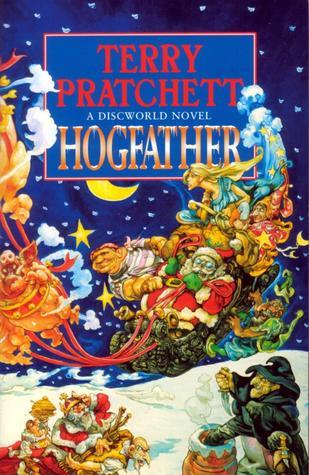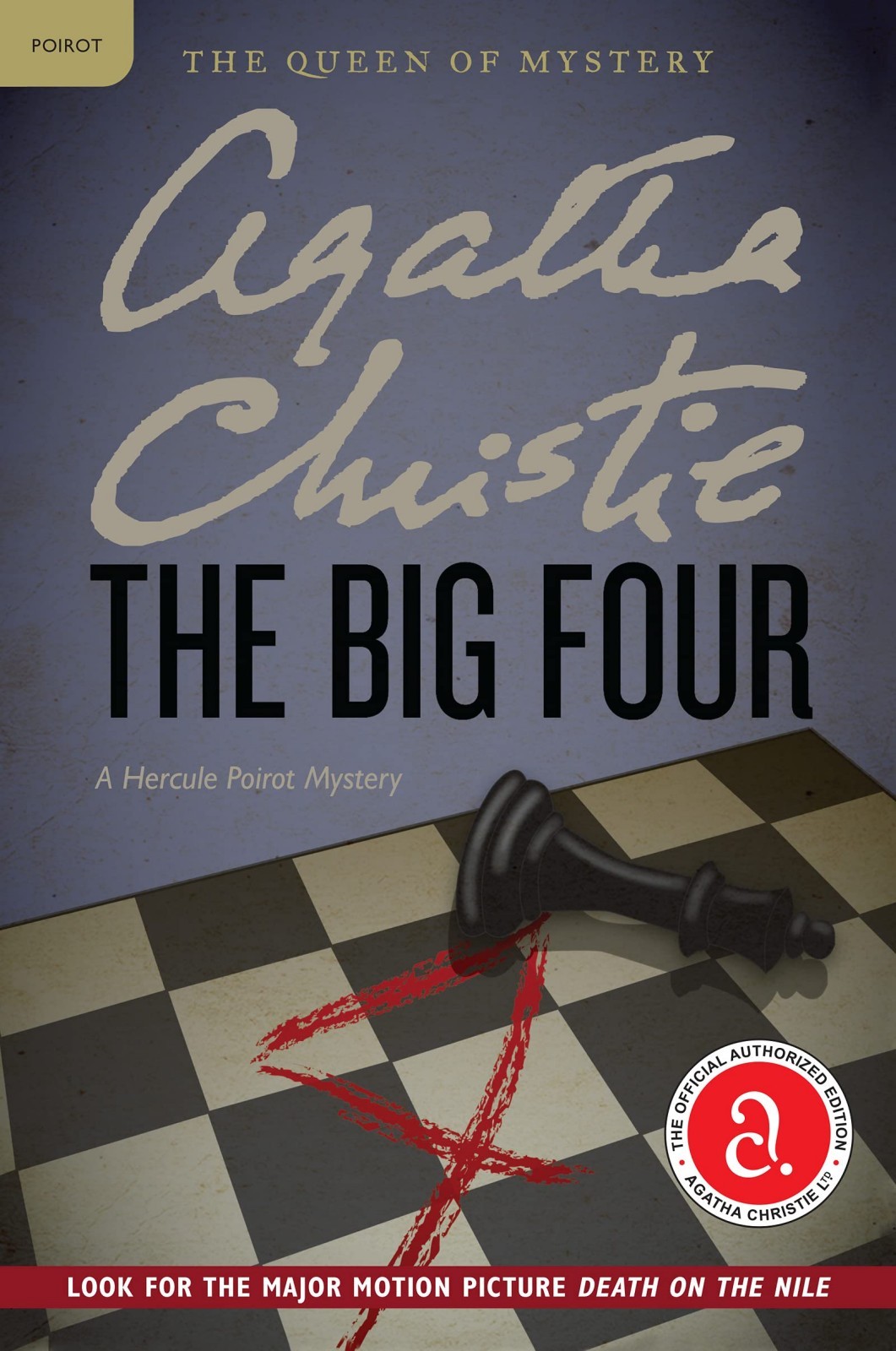Hogfather (Discworld, #20; Death, #4)
Title: Hogfather (Discworld, #20; Death, #4)

Author: Terry Pratchett
Published in: 1996
Date read: 29th July 2008
Score: 5/5
Genre: Fantasy, Comedy
Plot: (Warning, may contain spoilers):
"Hogfather" by Terry Pratchett is the 20th novel in his Discworld series and the fourth to feature Death as a central character. Published in 1996, it's a festive and philosophical fantasy that explores the nature of belief, the importance of imagination, and the role of anthropomorphic personifications in the Discworld.
The story opens on Hogswatchnight (the Discworld's equivalent of Christmas Eve). To the alarm of everyone, particularly Death, the Hogfather – the jolly, red-robed bringer of presents – has gone missing. He's simply vanished, and the sun isn't rising properly.
Death, realizing that the Hogfather's disappearance is threatening the very fabric of belief and therefore reality (on the Discworld, things exist because people believe in them), decides that something must be done. To prevent the collapse of the belief system that keeps the Discworld's sun rising and various important entities functioning, Death reluctantly steps into the role of the Hogfather. With his booming, capital-letter voice, skeleton frame, and a terrifying ability to turn "Ho ho ho!" into a chilling pronouncement, he attempts to deliver presents and maintain the illusion, often with the bewildered assistance of his manservant, Albert, and his granddaughter, Susan Sto Helit.
Susan, a no-nonsense, highly practical governess who tries desperately to ignore her supernatural lineage (being Death's granddaughter), finds herself drawn into the mystery. She suspects there's more to the Hogfather's disappearance than just a simple holiday malfunction.
The true orchestrators of the plot are revealed to be the Auditors, celestial beings who embody the mundane, soulless logic of the universe. They despise the chaos and unpredictability of life and belief, particularly human belief in things that aren't "real" (like the Hogfather). They have hired the Teatime (pronounced Tee-ah-tim-eh), a dangerously intelligent and psychopathic assassin, to "eliminate" the Hogfather in a way that is logically irrefutable, thereby destroying belief itself. Teatime's methods are chillingly precise and devoid of any conventional morality.
Susan, using her unique perspective and connection to the supernatural, follows Teatime's chilling trail of logic and murder. She partners with the Tooth Fairy, another minor anthropomorphic personification, and encounters the Oh God of Hangovers, as she pieces together the plot. The novel delves into various other abstract entities that are maintained by human belief, such as the Eater of Socks and the Verruca Gnome, illustrating the fragility and power of shared imagination.
The climax sees Susan confronting Teatime at the Tooth Fairy's castle, where he intends to not only steal all the collected teeth (which are conduits of stored belief) but also to eliminate the Hogfather and all other similar entities. Death arrives to fulfil his duty as the substitute Hogfather, and in a philosophical and magical showdown, the importance of belief, even in "lies" that make life worth living, is passionately defended. "Hogfather" is a poignant and often hilarious exploration of the critical role that stories, myths, and even benevolent deceptions play in the human experience.
Comments:
Such wonderful storytelling of such a wonderful idea. Loved every minute of it.
Books that we've read by Terry Pratchett (39):
The Colour of Magic (Discworld, #1; Rincewind, #1) (1983), The Light Fantastic (Discworld, #2; Rincewind, #2) (1986), Equal Rites (Discworld, #3; Witches, #1) (1987), Mort (Discworld, #4; Death, #1) (1987), Sourcery (Discworld, #5; Rincewind, #3) (1988), Wyrd Sisters (Discworld, #6; Witches, #2) (1988), Guards! Guards! (Discworld, #8; City Watch, #1) (1989), Pyramids (Discworld, #7) (1989), Eric (Discworld, #9; Rincewind, #4) (1990), Moving Pictures (Discworld, #10; Industrial Revolution, #1) (1990), Witches Abroad (Discworld, #12; Witches, #3) (1991), Reaper Man (Discworld, #11; Death, #2) (1991), Small Gods (Discworld, #13) (1992), Lords and Ladies (Discworld, #14; Witches, #4) (1992), Men at Arms (Discworld, #15; City Watch, #2) (1993), Soul Music (Discworld, #16; Death, #3) (1994), Interesting Times (Discworld, #17; Rincewind, #5) (1994), Maskerade (Discworld, #18; Witches, #5) (1995), Feet of Clay (Discworld, #19; City Watch, #3) (1996), Hogfather (Discworld, #20; Death, #4) (1996), Jingo (Discworld, #21; City Watch, #4) (1997), Carpe Jugulum (Discworld, #23; Witches, #6) (1998), The Last Continent (Discworld, #22; Rincewind, #6) (1998), The Fifth Elephant (Discworld, #24; City Watch, #5) (1999), The Truth (Discworld, #25) (2000), The Last Hero (Discworld, #27; Rincewind, #7) (2001), Thief of Time (Discworld, #26; Death, #5) (2001), Night Watch (Discworld, #29; City Watch, #6) (2002), The Wee Free Men (Discworld, #30; Tiffany Aching, #1) (2003), Monstrous Regiment (Discworld, #31; Industrial Revolution, #3) (2003), A Hat Full of Sky (Discworld, #32; Tiffany Aching, #2) (2004), Going Postal (Discworld, #33; Moist von Lipwig, #1) (2004), Thud! (Discworld, #34; City Watch, #7) (2005), Wintersmith (Discworld, #35; Tiffany Aching, #3) (2006), Making Money (Discworld, #36; Moist Von Lipwig, #2) (2007), Unseen Academicals (Discworld, #37; Rincewind, #8) (2009), I Shall Wear Midnight (Discworld, #38; Tiffany Aching, #4) (2010), Snuff (Discworld, #39; City Watch, #8) (2011), Raising Steam (Discworld, #40; Moist von Lipwig, #3) (2013)
This page was updated on: 23rd July 2025

